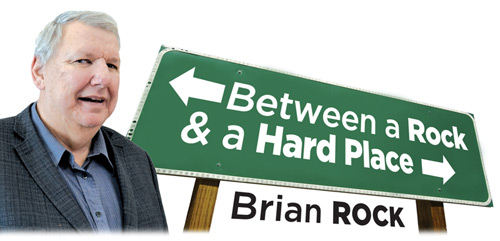Why the Next Minister of Education Must Learn What the Definition of Meaningful Consultation Really Means!

con·sul·ta·tion
[ˌkänsəlˈtāSH(ə)n]
NOUN
• the action or process of formally consulting or discussing:
"They improved standards in consultation with educational representatives." ·
synonyms:
discussion · dialogue · discourse · debate · negotiation · conference · deliberation
The following is an appeal to whomever is the appointee for the important portfolio of Minister of Education of Québec in the next Provincial Cabinet following the general election of Monday, October 3rd, 2022:
Following your memorization of the definition of consultation above, your first formal action as Minister should be the convoking of an Estates General of Education in the province. I do understand that an Estates General necessitates an enormous task of organization. Therefore, let us suggest Montréal as the location, and the dates to be Wednesday, January 25th, Thursday, January 26th, and Friday, January 27th, 2023.
“The principal goal of education in the schools should be creating men and women who are capable of doing new things, not simply what other generations have done.” - Jean Piaget
The following is the wish list of the serious challenges in the field of education that should be discussed and solutions discovered at the 2023 Estates General on Education:
# 1: On graduation from Secondary V, every student in this province should be bilingual and bicultural with a balanced view of history, the necessary skills in mathematics, science, and technologies, and the critical thinking skills necessary to be an involved member of the society of the twenty-first (21st) century.
How can we accomplish this linguistic-cultural dream? We already have the means within the present system to put in place what would be the envy of every other educational jurisdiction.
# 2: In every school across the province, starting in Elementary Cycle III, Year I, (Grade 5), half the classes receive instruction in French, the other half in English, in all subjects for five (5) straight months - Francophone teachers teaching in French, and Anglophone teachers teaching in English. Teachers swap classes for the last five (5) months of the school year. This also continues through Elementary Cycle III, Year 2, (Grade 6).
# 3: We also promote la culture Québécoise by making available grants for cultural outings in the language of instruction. It is the ideal opportunity to showcase our talented Québécois artists – both Francophone and Anglophone – in the fields of song, music, dance, theatre, comedy, crafts, and related disciplines.
# 4: It is time to raise the age for compulsory education to eighteen (18) years of age. It will allow our graduating students to be on an equal footing with those of surrounding educational jurisdictions.
It will be necessary to expand the quality and offerings of technical vocational programs at the senior secondary and collegial levels of instruction across the province.
# 5: How are we going to solve the shortage of qualified teachers in our classrooms?
a/ Improve the working conditions of teachers.
b/ Ensure teachers receive fair salaries that are not near the bottom of the provincial and territorial averages.
c/ Install a meaningful system of consultation that actually provides for meetings with teachers and discussing and debating the important issues underlying the principles of what is actually being taught to students.
d/ Allow for the creation of a teaching regulator similar to the successful Ontario College of Teachers.
e/ Finance more spaces in the Bachelor of Education degree programs in all universities in Québec.
f/ Allow for the return of a one-year pedagogical certificate for the holders of Bachelor degrees of teachable subjects to the faculties of education for pre-school, elementary, secondary, and C.E.G.E.P. teachers, as well as university professors.
# 6. Improve the delivery of special education services. Provide additional adequate financial resources to hire more professional employees to reduce the time of delivery from the initial diagnosis to the delivery of services to students with learning disabilities.
# 7: Tackle the issues of bullying, violence, racism, and discrimination in our educational institutions head on. Put in place the financial resources necessary to hire more professional personnel to address the issues and provide the necessary effective follow-up.
AND finally: # 8: Seek more input from student representatives at the senior secondary, C. E. G. E. P., and university levels. On the boards of directors of the educational institutions, school boards, and school service centers, ensure seats for elected student representatives with full voting rights and the privileges of proposing and seconding motions and engaging in meaningful participation in discussions and debates.
Dear Minister of Education of Québec: Please take the above suggestions under advisement, and consider implementing them as soon as possible for an improved system of education for the students of Québec.
“Education is the most powerful weapon which you can use to change the world.”– Nelson Mandela

